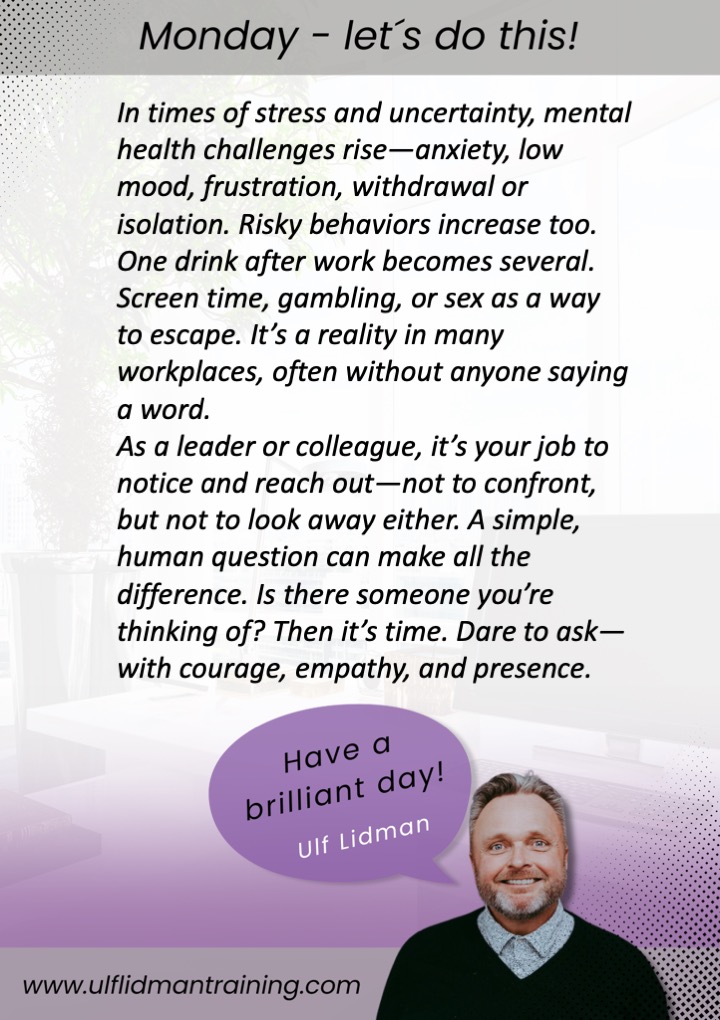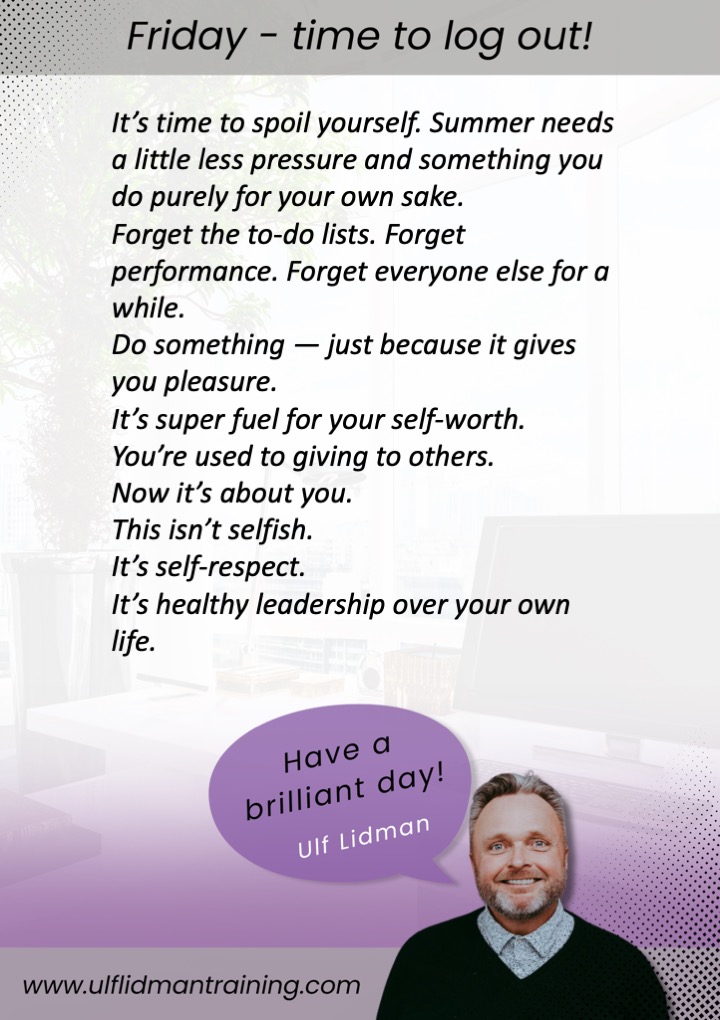Don’t get me wrong – self-pity is a natural part of life when it hurts. There’s a time for everything, and when crises strike, we need to allow and normalize the reactions that follow. We need space to feel, cry, and process what’s happened. But there is also a limit. Eventually, the time comes when we’ve settled into our crisis, and then we need something else.
When I shared my pain with my mentor, she responded with both empathy and sharpness. She listened and then said:
“So what?”
Those words could have come across as harsh, but her tone carried a deeper meaning. She reminded me that no one else could take responsibility for my life – it was up to me. She showed me how many people, despite deep trauma, find the strength to move forward.
It was that empathetic “so what?” that shook me and made me realize it was time to take responsibility. I saw that if I didn’t take that step myself, I risked getting stuck in victimhood, waiting for others to solve my problems.
A few weeks later, I learned that my mentor was born in Auschwitz and lost her entire family to the Nazis. Her authority and life wisdom were real, rooted in the most extreme life circumstances.
Today, I often think of her when I meet people in crisis. In the beginning, we need to be met with understanding and space to heal. But there always comes a point when allowing must give way to action – when it’s time for a deeply compassionate: “So what?”
My mentor’s wisdom and her way of fostering personal responsibility saved me. It’s a privilege to teach others this empathetic “so what?”-skill today.
Wishing you all a great day!
Ulf Lidman





